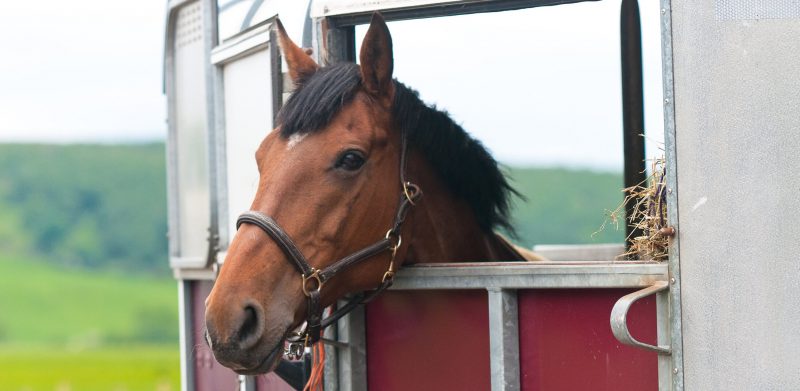
Don’t horse around at the border
Horses and other livestock cross the border between Canada and the United States every day without a hitch – excuse the pun – whether competition horses, recreational horses or horses for breeding or farming, on a temporary basis or for permanent import. Transporting live animals can be very stressful for them, as well as for you, so you don’t want to be unnecessarily detained at the border trying to sort out paperwork.
Here are a few tips on how to make the process as smooth as possible so you won’t feel like a jackass.
- Decide if the animal is entering on a temporary or permanent basis. There are different rules for each scenario. Horses can enter Canada temporarily on an E29B import entry for a period up to 12 months from the U.S.. Horses that are bought or sold and imported into Canada will require payment of the applicable taxes at time of entry as well as a veterinary inspection. You will be charged a fee for the inspection and will need a bill of sale to establish the animal’s value. However, horses imported on a temporary basis (e.g. for competition) may enter free of tax provided you can prove the animal will not remain in Canada after the event. Horses entering for less than 30 days may not require a veterinary inspection at the border. Horses bred in Canada that live in the U.S. for more than 60 days are considered American horses, which means that if you purchase such an animal and return it to Canada you will be required to pay the tax.
- Make sure your veterinary paperwork is up to date. You will need a current health certificate and an EIA (Coggins) test. Let your veterinarian know you intend to cross the border with the animal – he or she will probably be familiar with the paperwork required.
- Not all border crossings offer veterinary inspections, so make sure you cross the border at a port where the service is available. Take note that the service is usually only offered weekdays from 9:00 a.m. to 5:00 p.m. It’s a good idea to check with your customs broker to find out where and when you can cross the border. You will need to make an appointment with the veterinarian in advance.
- Make arrangements well ahead of time. Better to make all the necessary inquiries and verify documents are in order before you hit the border as you may be turned back if something is amiss.
- Certain Canadian provinces and American states have different regulations and requirements, so it is important to advise your customs broker where the animal is from and where it will be delivered in order to determine if any special documents are required. Animals that originate in countries other than the United States or Canada are more highly regulated and, in some cases, prohibited, so it is essential to inquire in advance for these animals.
- A horse with no name. Usually documents are matched up by the name and description of the animal, so if the name on the health certificate is different from what appears on the bill of sale, you may have a problem. If you purchase a horse don’t change the name until after you have cleared customs and crossed the border.
- Use your good “horse sense” and contact a customs broker. Your customs broker, whether in the U.S. or Canada, is your best bet to help you get through the border as smoothly as possible. Don’t forget to contact your broker well in advance with all the necessary details so that he or she is in a better position to help you make all the arrangements and appointments and verify if all your documents are in order.
- Lastly, keep in mind that you must also notify your customs broker if you have purchased a trailer to transport the animal. There may be regulations or transport-related requirements to deal with. You may use your own trailer or appoint a specialized transporter, but, whichever you choose, your broker will need to know in advance.